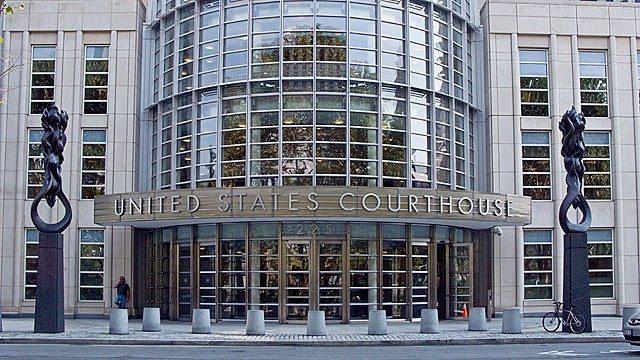New York case could help Apple in its fight with the FBI
While FBI director James Comey and Apple lead counsel Bruce Sewell were testifying Tuesday before Congress, other members of Apple’s legal team had a victory to celebrate. The company won a case against the government similar to the fight over the San Bernardino gunman’s iPhone.
Federal agents in New York wanted a court order requiring Apple to help them get around the password security feature on an iPhone 5 that belonged to a confessed drug dealer. The government claimed authority under the All Writs Act, the same legislation it is using in its effort to access an iPhone tied to the attacks in San Bernardino, California. On Monday, federal Magistrate Judge James Orenstein issued a 50-page ruling that said the government cannot use the All Writs Act to compel Apple to write code that would help the agents access information on the drug dealer’s iPhone. Judge Orenstein implied the All Writs Act applies to cases in which there is no legislative recourse, and said this is not such a case.
“The relief the government seeks is unavailable, because Congress has considered legislation that would achieve the same result but has not adopted it,” Judge Orenstein wrote. Both Apple and the FBI are now hoping Congress will weigh in on the issue.
Judge Orenstein noted the government has successfully used the All Writs Act to compel Apple to surrender information from 70 mobile devices to date, and that there are roughly a dozen similar cases in the courts now. This ruling could impact those cases, as well as future cases that rely on the All Writs Act.
The All Writs Act gives the U.S. government authority to “issue all writs necessary or appropriate in aid of their respective jurisdictions and agreeable to the usages and principles of law.” It predates the iPhone by a few years, as it was passed in 1789.
Another U.S. law that appeared in 1789, the First Amendment, is being used by Apple as a further defense of its right to deny the FBI’s request. The FBI wants Apple to create a new operating system that would enable agents to bypass the feature that locks an iPhone after 10 unsuccessful attempts to enter a password. Apple says writing software code is a form of speech, and the government would violate Apple’s right to free speech by compelling the company to write code.

